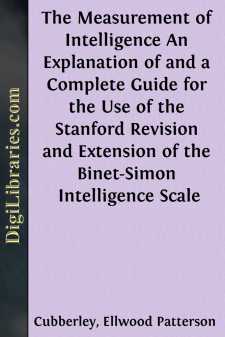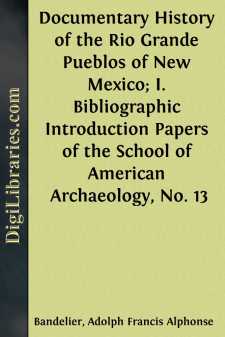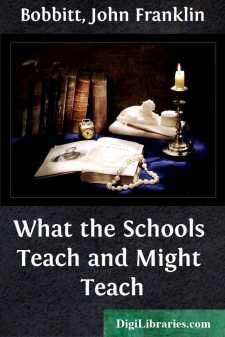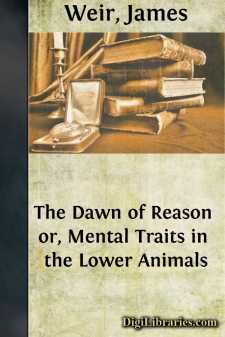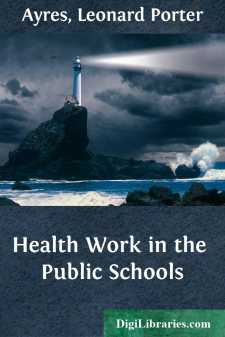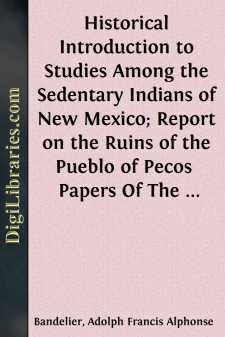Categories
- Antiques & Collectibles 13
- Architecture 36
- Art 48
- Bibles 22
- Biography & Autobiography 813
- Body, Mind & Spirit 142
- Business & Economics 28
- Children's Books 17
- Children's Fiction 14
- Computers 4
- Cooking 94
- Crafts & Hobbies 4
- Drama 346
- Education 46
- Family & Relationships 57
- Fiction 11829
- Games 19
- Gardening 17
- Health & Fitness 34
- History 1377
- House & Home 1
- Humor 147
- Juvenile Fiction 1873
- Juvenile Nonfiction 202
- Language Arts & Disciplines 88
- Law 16
- Literary Collections 686
- Literary Criticism 179
- Mathematics 13
- Medical 41
- Music 40
- Nature 179
- Non-Classifiable 1768
- Performing Arts 7
- Periodicals 1453
- Philosophy 64
- Photography 2
- Poetry 896
- Political Science 203
- Psychology 42
- Reference 154
- Religion 513
- Science 126
- Self-Help 84
- Social Science 81
- Sports & Recreation 34
- Study Aids 3
- Technology & Engineering 59
- Transportation 23
- Travel 463
- True Crime 29
Sort by:
EDITOR’S INTRODUCTION The present volume appeals to the editor of this series as one of the most significant books, viewed from the standpoint of the future of our educational theory and practice, that has been issued in years. Not only does the volume set forth, in language so simple that the layman can easily understand, the large importance for public education of a careful measurement of the...
more...
No description available
THE POINT OF VIEW There is an endless, and perhaps worldwide, controversy as to what constitutes the "essentials" of education; and as to the steps to be taken in the teaching of these essentials. The safe plan for constructive workers appears to be to avoid personal educational philosophies and to read all the essentials of education within the needs and processes of the community itself....
more...
by:
James Weir
The Senses in the Lower Animals The sense of touch—The senses of taste and smell—Actinophryans having taste—The sense of sight—Modification of sight organs by surroundings—Sight in Actinophryans—Blind fish sensitive to light—Blind spiders—Blind man—Primitive eyes in Cymothoe—In the jelly-fish, sea-urchin, Alciope, Myrianida—The sight organs of the snail—Power of vision in the...
more...
by:
Victor Gollancz
PREFACE In December, 1917, the present writers wrote a little book entitled "Political Education in a Public School," in which they put forward their views as to what the aims and methods of a modern liberal education should be. They also described certain experiments which they had been permitted to make in one of our old English Public Schools, experiments which both illustrated the...
more...
The Argument for Medical Inspection Medical inspection is an extension of the activities of the school in which the educator and the physician join hands to insure for each child such conditions of health and vitality as will best enable him to take full advantage of the free education offered by the state. Its object is to better health conditions among school children, safeguard them from disease,...
more...
FASTING GIRLS. I. ABSTINENCE IN THE MIDDLE AGES. Among the many remarkable manifestations by which hysteria exhibits itself, for the astonishment of the credulous and uneducated portion of the public, and—alas, that it should have to be said,—for the delectation of an occasional weak-minded and ignorant physician, the assumption of the ability to live without food may be assigned a prominent place....
more...
by:
Bernard Glueck
When, in 1810, Franz Joseph Gall said: “The measure of culpability and the measure of punishment can not be determined by a study of the illegal act, but only by a study of the individual committing it,” he expressed an idea which has, in late years, come to be regarded as a trite truism. This called forth as an unavoidable consequence a more lively interest on the part of various social agencies...
more...
EDITOR'S INTRODUCTION In presenting a second monograph on the rural school problem in this series we register our sense of the importance of rural education. Too long have the rural schools suffered from neglect. Both the local communities and the State have overlooked the needs of the rural school system. At the present hour there is an earnest awakening of interest in rural life and its...
more...
Part I. The earliest knowledge of the existence of the sedentary Indians in New Mexico and Arizona reached Europe by way of Mexico proper; but it is very doubtful whether or not the aborigines of Mexico had any positive information to impart about countries lying north of the present State of Querétaro. The tribes to the north were, in the language of the valley-confederates,...
more...


